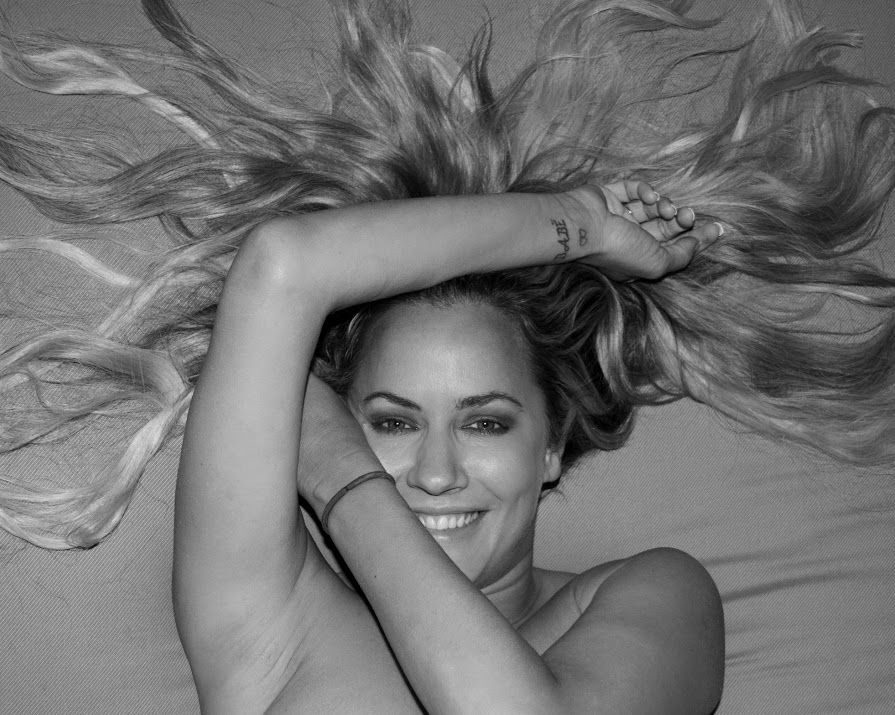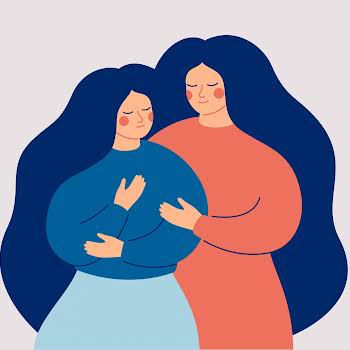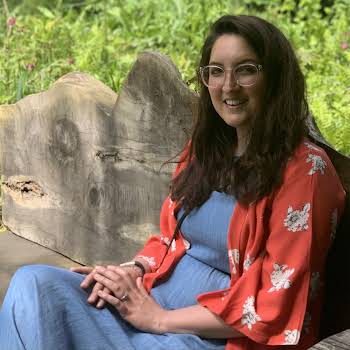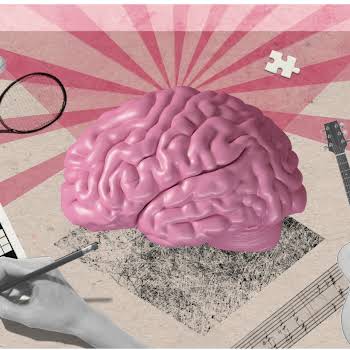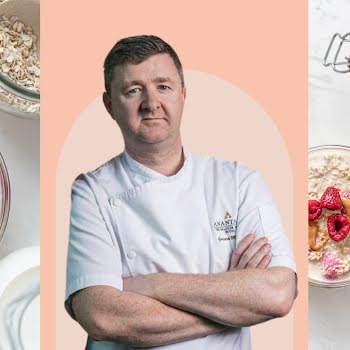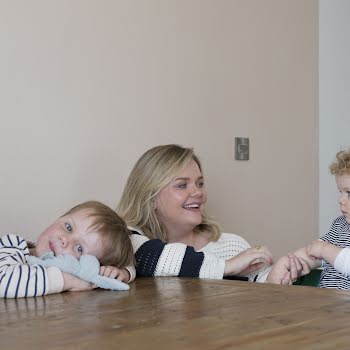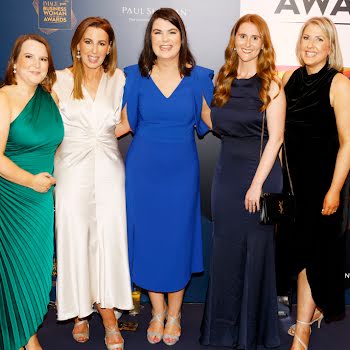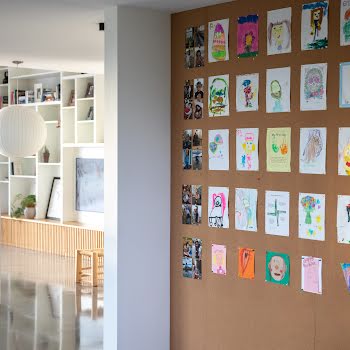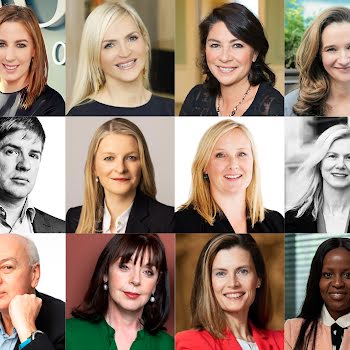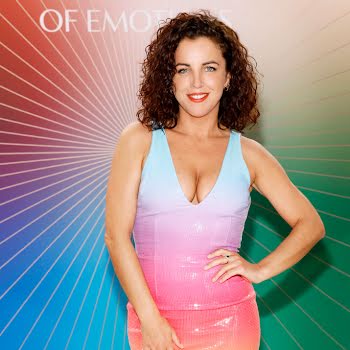The pressing, important message in the Caroline Flack documentary
By Holly O'Neill
18th Mar 2021
18th Mar 2021
Read time: 5 minutes
On Wednesday, Channel 4 aired Caroline Flack: Her Life and Death, a gutting first-hand account of the presenter’s life and untimely demise, told by her closest family and friends. The documentary featured home videos, revolting tabloid headlines, heart-wrenching videos taken by Caroline Flack on her phone and tearful testimonies from her loved ones coming to terms with her death and telling Caroline’s story of the events that led her to suicide.
Her death shocked the world and ignited social media with a message from one of her final social media posts; “in a world where you can be anything, be kind.” A year on, that message is long forgotten, as tabloids have turned their invasive glare to Meghan Markle. Following the release of the documentary, Caroline’s boyfriend Lewis Burton has turned off the comments on his Instagram account.
The documentary shines a light on the woman behind the headlines, with home videos showing her choreographing dance routines with her sister or messing about with her friends.
The vibrant, giddy Caroline Flack on television always seemed like someone you wanted to be friends with or felt a connection to, with a permanent husky laugh, warm empathy on sometimes harsh reality tv and perpetually excellent hair. That is entirely backed up by her family and friends, who all say that she was the most fun and funny person to be around, that every moment with her was an adventure and that she always made you feel loved.
In the documentary, family and friends, including Caroline’s mother Christine and twin sister Jody revealed that though she was the bubbly person that so many felt connected to that her death came as a gut-punch, Caroline had struggled with her mental health her whole life but she was skilled at hiding it and never wanted anyone to know the extent of her pain.
“She struggled emotionally, she was very depressed,” Jody says. “That pattern carried on forever. She really did find heartbreak impossible. Each serious boyfriend, she took a lot of tablets, drank a lot, ended up in an A&E situation a lot of times. And she really didn’t think she could cope with that feeling. And so I think it was her trying to control it.”
“She was quite fascinated by the subject of suicide always, and I knew that about her, so it was a worry for a long time, and something I tried to get my head around for a long time. So it’s something that’s in my life that I’m prepared could happen.”
“You always worried in case anything happened,” says her mother.
Caroline’s family and friends say that the relentless negative tabloid stories and social media trolling seriously impacted her mental health and that Caroline would constantly keep track of both. “She’d be on it constantly,” says her mother. “You can’t get away from it, it follows you home, it follows you on your phone,” says Christine Flack. “And Carrie was the worst one, she’d look at her phone all the time, it took her over, what was being said.”
“It was slightly destroying her,” says a friend. “And when you did see her, nothing would get mentioned. It would be, ‘yeah I’m fine’ where obviously she wasn’t fine.”
Her friends and family detail how tabloids lashed at her over and over, from picking over her relationships to a particularly nasty period when she was presenting the X Factor with Olly Murs and receiving constant negative social media and tabloid comments.
“[Her life was] just newspaper cannon fodder…” says her friend Natalie Pinkham, “and there was probably part of her that loved it and got a buzz from it, and there’s part of her that just chipped away at her soul. It was slow motion, just happening in front of our eyes.”
The backlash reached a fever pitch when, in December 2019, Caroline was charged with assaulting her boyfriend when police were called to her home. “Within 24 hours, journalists had the story,” says her friend. “And everything started to go from bad to worse.” After crisis talks with ITV, Caroline Flack stepped down from Love Island.
“What always got her out of it, was having to go to work, having to do something,” says her mother.
“It’s three days after I’ve been arrested for having a fight with my boyfriend,” said a tearful Caroline Flack in personal footage from her phone. “Since then I’ve lost my job. A job I’ve worked all my life for. It was just a fight,” she says, her voice cracking. “I’ve never hurt anyone in my life. The only person I ever hurt is myself.”
In the weeks leading up to her court case, Caroline was terrified that her depression was going to be made public, her mother says. In January, The Sun printed a graphic front-page of a bloodstained bed, and social media got angrier. “She just felt really ashamed that’s that what people saw her as,” says her friend. What hadn’t been printed in the tabloids, yet, was that the blood was Caroline’s. “She did do that when she got really low,” says her mother Christine.
“That was her worst nightmare – she did not want that to be made public,” says her friend. “She felt ashamed about that.”
“She was so fearful of anybody knowing anything and printing it,” says Christine. “I think she realised that everything was going to be in the press, and they’d find out she had these dark moments, and she didn’t want people to know that.”
Weeks later, Caroline Flack took her own life.
“Someone else could’ve probably dealt with it, but she couldn’t,” says her mother. “She just hated the thought that people thought she was this awful person. Even when she’d taken pills as a young person, she didn’t want anyone to know she got down. And I know they say, ‘Everyone’s talking about it now.’ But I think a lot of people that really suffer with depression still don’t talk about it. You’re either ashamed of it, or you’re frightened that they’ll think something about you. So I think people are still frightened to say it.”
Caroline Flack: Her Life and Death has reignited the dialogue on suicide, highlighting that hiding mental health problems can be all too easy.
“She wouldn’t talk to me. She said it was fine,” says her friend. “They pretend everything is fine, when it’s not.”
“It’s very difficult to know the extent of someone’s problems if they sweep them under the carpet,” says Dermot O’Leary. “She just hid it so well,” says Dee Koppang O’Leary. “The only warning signs were the addictions to social media, you saw that over the years, progressing and obviously that grew.”
“She wasn’t emotionally wired to deal with all the pressures that came with being famous but you wouldn’t know that, because it wasn’t obvious,” says a friend.
“You didn’t know what was going on in her head,” says her mother. “You just didn’t know.”
It’s a message also highlighted in Roman Kemp’s BBC documentary Our Silent Emergency, made after the death of his friend Joe, which aired on Monday. “I lost Joe without any warning, suddenly and unexpectedly,” he says in the documentary. “I had no idea he was struggling. I spent every day with Joe and didn’t see any signs.”
In Roman’s documentary, he meets a group of young men affected by suicide who use a method Roman calls ‘the two okay rule.’ “They ask are you okay once, then they say it again a second time,” says Roman. “I hope people walk away from watching this and take that because it’s so right. It’s a question that gets glazed over so quickly, and when you ask it that second time the person gives you that honest answer, and I think you’d be shocked at how much that actually works, just by repeating the question again.”
The Samaritans states that “when people feel listened to, it can save a life.” Asking someone if they’re okay, really, could be the start of a conversation, and a reminder that there’s somebody who cares.
Samaritans, freephone 116123 or text 087 260 9090. Pieta House, freephone 1800 247 247 or text HELP to 51444. Aware, freephone 1800 804 848.











